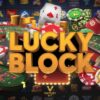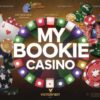Gambling can be an exhilarating pastime for many, offering thrills and the chance for financial gain.
However, the allure of betting can quickly turn into a risk if not approached with caution and mindfulness.
This article serves as your ultimate guide to responsible gambling, emphasizing the importance of viewing this activity as a form of entertainment rather than a means to achieve financial success.
By implementing specific strategies and maintaining self-awareness, you can enjoy gambling safely and effectively while minimizing the potential for harmful behaviors.
In this guide, we’ll explore practical tips for managing your gambling habits, including setting budgets, understanding game mechanics, and recognizing when to seek help.
With these tools at your disposal, you can ensure that your gambling experience remains fun and exciting without compromising your financial stability or personal wellbeing.
Key Takeaways
- Gambling should be viewed as entertainment, not a source of income.
- Establishing strict budgets and time limits is crucial for responsible gambling.
- Understanding game odds and taking breaks enhances the overall gambling experience and decision-making.
Key Strategies for Responsible Gambling
### Key Strategies for Responsible Gambling
In the world of gambling, the thrill of the game often overshadows the potential risks involved.
However, engaging in responsible gambling practices is crucial for ensuring that this form of entertainment remains enjoyable and does not spiral into detrimental behavior.
Responsible gambling is fundamentally about seeing gambling as a source of entertainment rather than a means to make money.
To maintain this balance, there are several key strategies that every gambler should consider.
1.
Setting Spending and Loss Limits: One of the most effective ways to gamble responsibly is to establish strict spending limits.
Before placing any bets, individuals should determine a specific amount they are willing to lose and commit to never exceeding this budget.
This practice prevents the common pitfall of chasing losses—a behavior that can lead to significant financial distress.
2.
Designating Gambling Times: Another vital strategy is to designate specific times for gambling activities.
This approach ensures that gambling fits comfortably within one’s schedule and does not interfere with essential daily responsibilities.
By treating gambling as a scheduled leisure activity rather than a spontaneous decision, individuals can keep it in check.
3.
Gambling Sober: Making decisions under the influence can lead to impaired judgment.
To mitigate this risk, it is advisable to indulge in gambling activities while sober.
This clarity can help in making informed decisions, minimizing the chances of making impulsive bets.
4.
Taking Breaks: Frequent breaks during gambling sessions are beneficial for maintaining a healthy perspective.
Taking time away allows individuals to reassess their strategy, emotions, and financial standings, contributing to better decision-making.
5.
Understanding Game Odds: An informed gambler is a responsible gambler.
By understanding the odds of various games, participants can set realistic expectations and better manage their spending.
Knowledge about how different games work can enhance the overall experience and contribute to responsible gambling habits.
Additionally, the article discusses popular gambling strategies such as the Martingale and Paroli systems which encourage disciplined betting strategies while helping players keep their budgets in check.
It also explores the rising trend of cryptocurrency gambling, which offers unique tools for better spending limit management.
It’s imperative to highlight the dangers of gambling addiction.
The lure of quick financial gain can lead to severe consequences, including financial ruin, psychological struggles, and strained relationships.
Recognizing signs of problematic gambling behavior is the first step toward recovery.
The article reinforces that seeking help is a brave and commendable action—one that can lead to healthier gambling practices or full recovery from addiction.
By practicing these responsible gambling strategies, individuals can enjoy the thrill of the game while safeguarding their wellbeing.
Recognizing and Addressing Gambling Addiction
Gambling addiction can have devastating effects, impacting not just the individual but also their families and communities.
Recognizing the signs of gambling addiction is crucial.
These can include a preoccupation with gambling, increasing amounts of time and money spent, and the continuation of gambling despite negative consequences.
Those suffering from this addiction may also conceal their gambling habits or experience feelings of guilt and regret after gambling sessions.
Addressing gambling addiction requires a multifaceted approach, combining personal accountability with professional support.
Resources such as counseling services, support groups, and hotlines are invaluable for individuals seeking to regain control.
Those affected should remember that reaching out for help is not a sign of weakness but rather a courageous step towards recovery and healthier gambling behaviors.






























